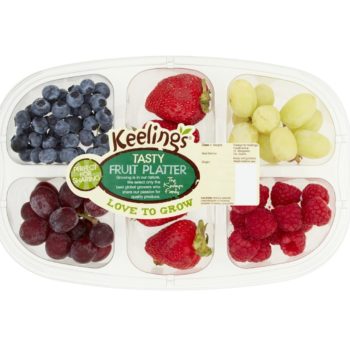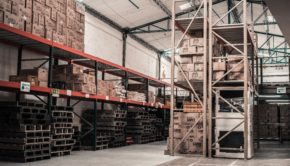Keeling’s declines to comment on seasonal workers’ housing arrangements

Fruit company defends decision to charter flight from Bulgaria, stating skilled seasonal workers are necessary to avoid market shortages
17 April 2020
Keeling’s has responded to concerns raised about the arrival of workers from Bulgaria on a chartered Ryanair flight on Monday, 13 April, stating that the “skilled horticulture staff” have returned in order to avoid risking shortages in the market.
“It is essential that we have adequate staffing on the farm to pick crops quickly as they ripen, or we risk shortages in the market,” the company said in a press statement.
However, according to RTE’s Ingrid Miley in a report which can be read here, the company has since declined to comment on the housing arrangements of the workers who arrived from Bulgaria, stating that it could not disclose where seasonal workers are living, as staff’s privacy and safety are paramount.
Meanwhile, the government is set to commence a recruitment programme for the horticulture sector which aims at hire individuals from the Live Register. According to the Taoiseach, if jobs cannot be filled locally, a decision may have to be made to allow the crop to fail or to allow workers to come from abroad to harvest it.
14 days’ restricted movement
Keeling’s, which is based at St Margaret’s in north county Dublin, stressed that no horticulture worker coming from another region will be asked to work without a full 14 days’ restricted movement.
“Across our entire business we have also worked tirelessly to implement the HSE and government guidelines to ensure we are protecting the health of all of our people,” Keeling’s said. “This includes thorough and repeated Covid-19 safety coaching and instruction to follow all the HSE guidelines, which includes 14 days of restricted movement for any new arrivals in the country, prior to starting work in Keeling’s.”
Local employment
The company added that the skilled seasonal workers, who not just pick fruit but also help “manage plant health” have been “a very important part of our workforce for many years.”
“Without these seasonal workers it would be impossible to bring fresh Irish strawberries to the Irish market,” Keeling’s said. “We understand the concern in the current environment regarding both social distancing and local employment. We want to assure the public that we are doing all we can to help support local employment at this time and to ensure the safety of all our workers.”
The company also asked those interested in working at Keeling’s, to contact them and visit its careers page for further details.
Ryanair and DAA respond
Meanwhile, Ryanair and Dublin Airport have both also responded to concerns raised about the chartered flight which allegedly brought 189 workers from Bulgaria.
Flight FR6015 arrived to Dublin Airport from Sofia on Monday, 13 April, as a result of being chartered by Keeling’s Fruits.
A DAA spokeswoman said: “The State’s health and travel policies in relation to Covid-19 are decided by the Irish government and Dublin Airport has been complying fully with those guidelines since the start of the public health crisis.
“In line with Irish government policy, Dublin Airport is open as an essential service for the import and export of vital cargo – such as medical equipment and pharmaceutical products – and for the repatriation of Irish citizens and residents.
“As the key agency in relation to Irish health policy, the HSE has staff at the airport and all arriving passengers – whether Irish residents or not – are being informed by those HSE staff that they need to restrict their movements for 14 days on arrival and also follow current Irish government guidelines in relation to movement restrictions.
“The Department of Health and HSE has said entry screening at airports does not work and that it is not recommended by WHO or the European Centre for Disease Control.
“That is why HSE officials are not carrying out airport screening in Ireland. Like all airports in Europe, we follow the Covid-19 travel policies that are set by our respective national Governments.”
A spokeswoman for Ryanair said: “This was a charter flight for a private company. Ryanair complied with all regulations set out by EASA and WHO on these special flights.”
Social distancing on board questioned
A Meath councillor said he had been provided with details of the flight and questioned how social distancing could be observed on the plane. He said he had received a letter, purportedly from a Ryanair employee, which claimed there were 189 passengers on board.
“There was no social distancing on board, putting all the cabin crew at risk, there was also 200 bags in the hold of the aircraft putting the ground handling agents at risk,” the letter claimed.
Meanwhile, local TD Paul McAuliffe said the company had shown “poor judgement” by recruiting the workers from overseas, stating members of the public had contacted him with “real concern” about images online which showed “large numbers of seasonal workers” arriving.
UK farms fly in workers from Romania
Concerns have also been raised in the UK about the transportation of workers from Romania to Essex in order to pick crops on British farms.
Sky News reported that yesterday, 150 Romanian field labourers had arrived at Stansted Airport, on a flight chartered by farming group G’s Fresh.
Farmers defended their decision, stating that without the workforce, crops may be left in the ground to rot and be wasted, at a time when it is vital the food supply chain is maintained during the Covid-19 pandemic.
They also described harvesting crops as skilled work and said many loyal Eastern European workers return each year to specific farms.
Stephanie Hildon, who runs Langmead Herbs in Chichester on almost 3,000 hectares of land, said that if efficiency levels dropped, prices could rise.
“If I was going to be recruiting from the UK and taking on people that are unfortunately out of work that would require a huge amount of retraining to get these people up to speed,” Hildon said.
“It’s highly likely that our efficiency levels would drop,” she added. “If our efficiency levels drop, we’re already in a rather low margin category, that means the price of food goes up.”
Hildon also claimed that while the company “always” advertises in the UK, that it wasn’t able to recruit UK workers and had subsequently looked abroad for staff.



 Print
Print




Fans 0
Followers